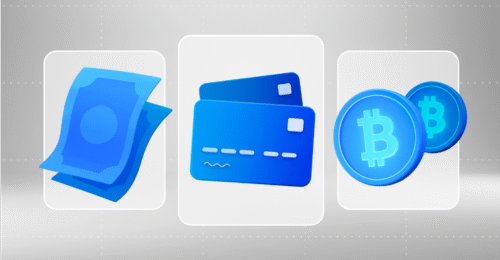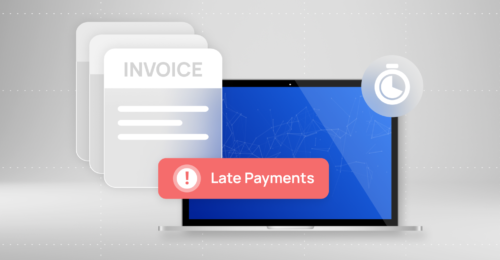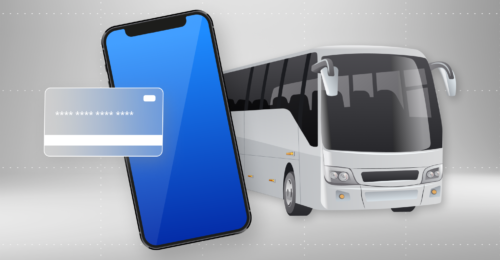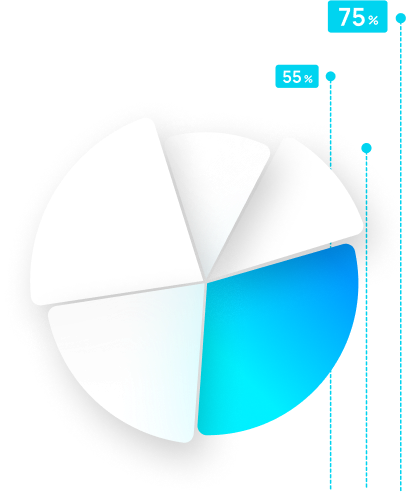- Payment gateway
- Blog
- Payment Gateways, PSPs, and Payment Orchestration: What’s the difference
Payment Gateways, PSPs, and Payment Orchestration: What’s the difference
Nowadays, businesses are presented with a myriad of options when it comes to handling online payments. Selecting the right payment solution can make all the difference in ensuring smooth transactions and customer satisfaction. Payment processing has evolved significantly, offering various solutions tailored to different needs. While searching the Web, businesses may lose the right direction, figuring out 3 common terms: Payment Gateway, Payment Service Provider (PSP), and Payment Orchestration Platform. In this article, we will get deeper into each of the term, describe the unique characteristics of each payment solution, and help you make an informed choice for your business
What is a payment orchestration platform?
Payment orchestration platforms function as a software layer or platform that orchestrates the entire payment journey, from authorisation to routing and settlement. Payment orchestration provider consolidates multiple acquirers, banks, and payment service providers into a single cohesive system, offering unparalleled flexibility and efficiency
Key Features of Payment Orchestration Platform:
Payment orchestration layer ensures the efficiency of the direct payments, and, as a result, minimising the processing expenses. Such cost-efficiency measures ensure that business remains competitive, adaptable, and robust
Analytical tools make real-time monitoring of payment success rates more effective. As a result, business can swiftly detect and resolve payment-related challenges, ensuring a smooth payment experience for your customers
Payment optimisation tools offer substantial transaction volume management capabilities. By using them, business can scale up the operations effortlessly, adapting to the changing needs with high efficiency
By offering a broader selection of payment instruments, payment orchestration can lead to increased conversion rates. This variety enhances customer satisfaction and leads to increased conversion rates
Payment Gateways: The Transaction Bridge
Payment gateways serve as the virtual bridge connecting your customers, your business, and the financial institutions involved. At its core, a payment gateway is essentially an Application Programming Interface (API) that facilitates online transactions. When a customer initiates a payment, the gateway securely collects and transmits the payment information to your bank for processing
Key Features of Payment Gateways:
It is vital to implement reliable security measures. Through encryption and tokenisation, customer data is protected from the ever-evolving landscape of cyber threats. Trust is paramount in the digital realm, and the gateways ensure customers can shop with confidence
By accommodating an extensive array of payment methods, the gateways empower businesses to cater to a global audience. From credit cards to digital wallets, from local to alternative payment methods. This enhances flexibility and ensures a high level of convenience for customers
With customisable payment pages, merchants can easily infuse their brand identity into every transaction. These tailored user experiences not only reinforce brand loyalty but also create a seamless transition from browsing to buying, enhancing customer satisfaction and trust
Payment Gateways can ensure the effortless integration capabilities. For merchants aiming to boost their payment acceptance, the gateways offer swift integration processes. Businesses can swiftly transition from setup to sales, ensuring minimal downtime and maximum efficiency
Payment Service Providers: The Comprehensive Solution
Payment Service Providers, on the other hand, offer a comprehensive solution that includes both technical and financial processing. They act as intermediaries that bridge the gap between merchants and financial institutions. PSPs handle agreements with issuing banks, acquirers, and various payment methods, streamlining the entire payment process
Key Features of PSPs:
PSPs empower merchants to streamline their payment processes, simplifying management and freeing valuable time for business expansion. Imagine the power of handling all transactions effortlessly under single contract
PSPs meticulously track changes in regulations and compliance requirements. By entrusting this responsibility to PSPs, merchants can focus on their core business activities while remaining confident in their legal adherence
Payment service providers boast extensive partnerships and networks with local banks and payment providers. This feature facilitates access for business to specific markets, enabling companies to grow and expand globally
PSPs ensure that the proceeds from successful transactions are transferred promptly and efficiently. Experience the confidence of a robust operational flow, allowing businesses to invest, grow, and innovate without hindrance
How it looks in theory
Payment Orchestration vs Payment Gateway
Generally, each of the payment options mentioned above has its own unique characteristics, making them different from each other. Payment gateway seems as a basic online payment solution with the only function to process payments between merchant and payment provider or acquirer
Function: A fundamental online payment tool, facilitating transactions between merchants and payment providers or acquirers
Characteristics: It focuses solely on processing payments, handling payment information exclusively
Role: Acts as an intermediary for secure and efficient online transactions
Compared to the gateway, payment orchestration platform is a new term, which means payment solution that processes online payments between merchants and more than one provider or acquirer. Both solutions operate with the payment information only
Function: A relatively new concept, it processes online payments not only between merchants and one provider but extends its functionality to multiple providers or acquirers
Characteristics: Offers a broader scope by orchestrating payments across various channels and providers
Role: Enhances flexibility and choice for merchants by enabling transactions with multiple payment providers
PSP vs Payment Gateway and Orchestration Platform
PSP is a licensed financial company, which operates with funds and opens the payment accounts for the clients, called Merchant ID (MID). To operate, PSP has to have its own or cooperate with the external payment solutions like gateways or orchestration platforms, which cover the technical part of processing
Function: A licensed financial entity that deals directly with funds, opening payment accounts for clients
Characteristics: PSPs operate with both funds and technical solutions, making them comprehensive payment facilitators
Role: Manages financial transactions, opens payment accounts, and integrates with payment gateways or orchestration platforms for seamless processing
In summary, while payment gateways focus on basic payment processing between merchants and single providers, payment orchestration platforms expand this capability to multiple providers, increasing flexibility. PSPs, on the other hand, are comprehensive entities that handle both funds and technical aspects, providing a holistic payment solution for businesses. Payment orchestration platform vs Payment gateway vs PSP, understanding these distinctions is crucial for businesses choosing the right payment solution tailored to their specific needs and requirements. Now let’s discover how it actually works
How it actually works
High competition on the market makes payment processing companies constantly develop the new features for their solutions. In such a landscape, the classical meaning of the terms payment gateway and payment orchestration platform blurs itself. Many of them now have a similar toolkit, expanding the niches of each other. The only difference of PSP from the previously mentioned terms in reality seems in the licence it must have. PSP may not even have its own technical solution, delegating all the processing issues to the technical partner
Let’s have a look at the Transferty case. We consider ourselves as a payment gateway, having most of the features related to the payment orchestration companies. For example:

Conclusion
The choice between payment gateways, PSPs, and payment orchestration providers hinges on the unique requirements of your business. Considering to choose payment gateway whether payment orchestration platform depends only on the functional toolkit of the specific solution. Even if you need to open MIDs for your operations, you may look for a payment gateway, like Transferty, which helps to find the best PSP options, according to the market, industry and other specificities of your business. Whichever solution you choose, the key is to stay flexible, adapt to changing technologies, and provide your customers with a seamless and secure payment experience










